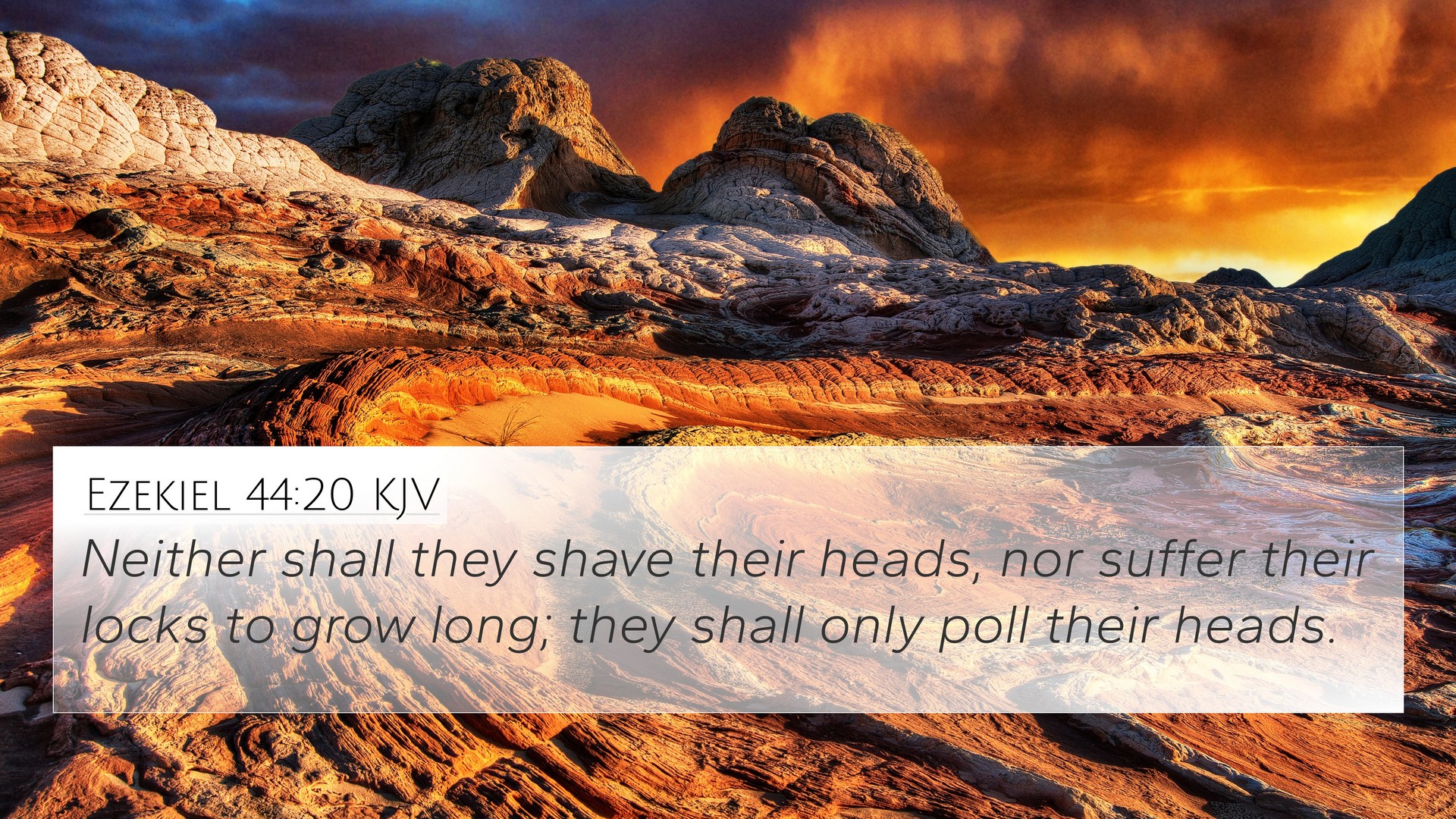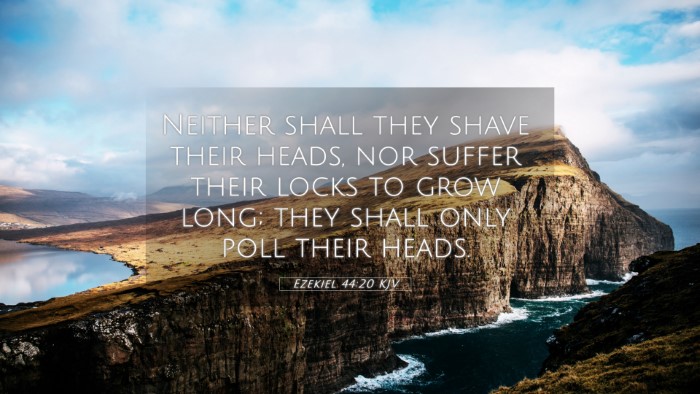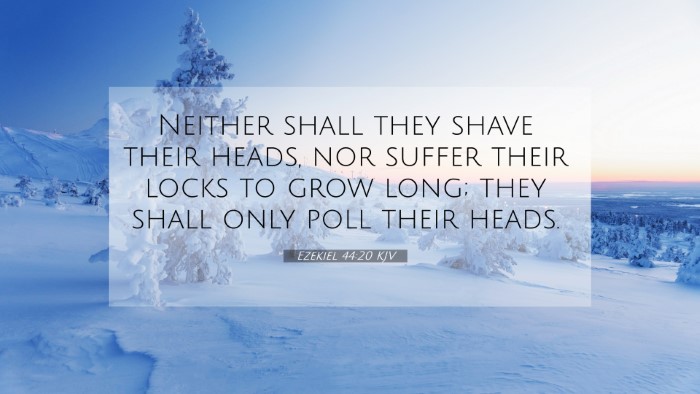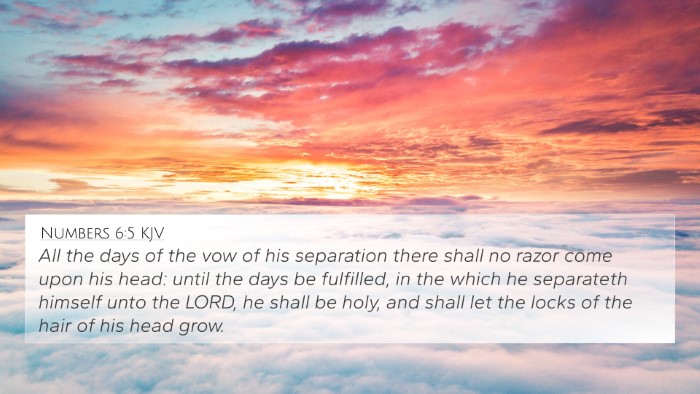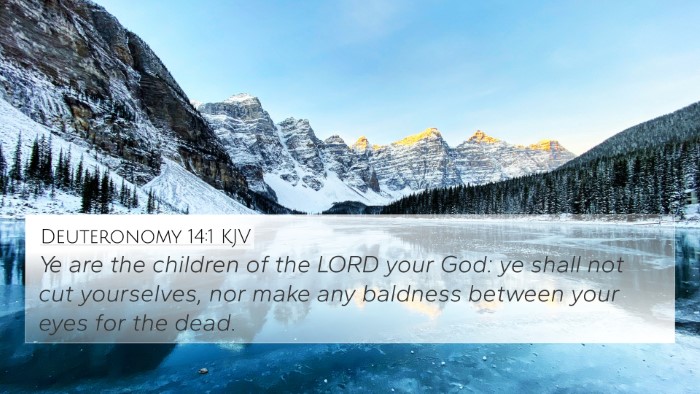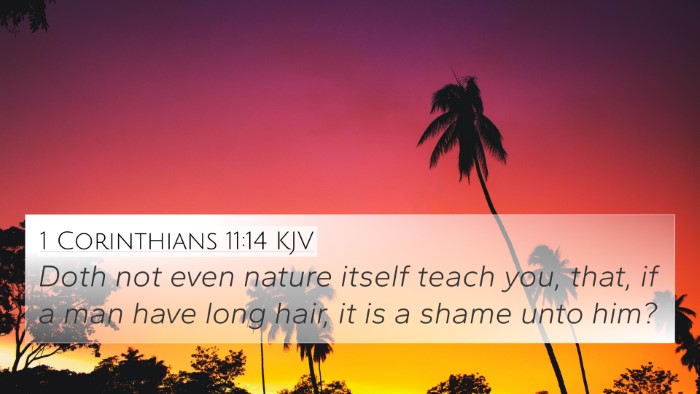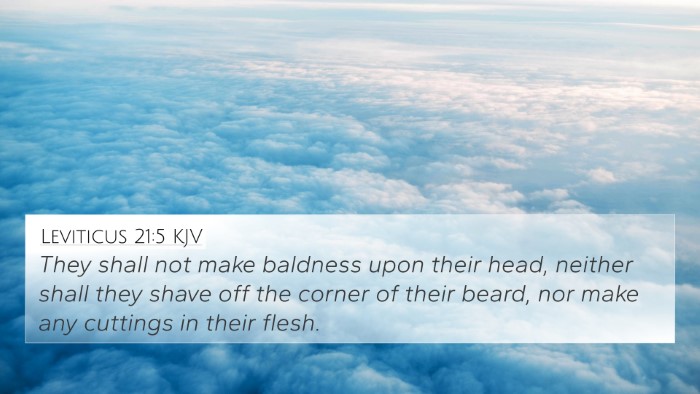Ezekiel 44:20: Understanding the Profound Meaning
Bible Verse: Ezekiel 44:20 states, "Neither shall they shave their heads, nor suffer their locks to grow long; they shall only poll their heads." This verse, while simple in its wording, carries deep implications regarding the conduct and appearance of the priests in ancient Israel.
Contextual Interpretation
The book of Ezekiel addresses the holiness of God and the standards expected from His people, particularly the priests who serve in the temple. This verse is a part of a larger discourse by the prophet Ezekiel concerning the duties and qualifications of the priests following the exile of Israel. It highlights the importance of maintaining a certain standard of appearance that reflects their consecration to God.
Commentary Insights
- Matthew Henry: Henry emphasizes that this injunction against excessive hair represents a larger theme of moderation and self-control among the priests. In his commentary, he notes that the idea is not merely about appearance but about the inner discipline and dedication required for those who minister before the Lord.
- Albert Barnes: Barnes points to the historical significance of hair as a symbol of pride and vanity. The directive serves to remind the priests to focus on their spiritual responsibilities rather than external appearances. He suggests that conformity to these standards is to spur humility and a sense of community.
- Adam Clarke: Clarke provides a deeper theological interpretation, linking the practice to ancient Near Eastern customs where hairstyles were often associated with particular rites or religious practices. He notes that the priests were to stand out as a distinct community set apart for divine service, hence the significance of their demeanor.
Bible Verse Cross-References
In understanding Ezekiel 44:20, we can enhance our study through several related scriptures. Here are seven significant cross-references:
- Leviticus 21:5: "They shall not make baldness upon their heads, neither shall they shave off the corner of their beards, nor make any cuttings in their flesh." This passage reinforces the idea of maintaining a sacred appearance.
- 1 Peter 2:9: "But ye are a chosen generation, a royal priesthood, an holy nation, a peculiar people..." This verse connects the identity of New Testament believers to the priestly standards set in the Old Testament.
- 1 Corinthians 11:14: "Doth not even nature itself teach you, that, if a man have long hair, it is a shame unto him?" Paul echoes the theme of honor in appearance, drawing parallels to societal norms of modesty.
- Isaiah 52:11: "Depart ye, depart ye, go ye out from thence, touch no unclean thing; go ye out of the midst of her; be ye clean..." This calls for spiritual purity that is mirrored in the physical behavior of the priests.
- Hosea 10:11: “Ephraim is as an heifer that is taught, and loveth to tread out the corn; but I passed over upon her fair neck: I will make Ephraim to ride; Judah shall plow, and Jacob shall break his clods.” Here, the metaphor of grooming and discipline in a spiritual context further affirms the priestly standards.
- Malachi 2:7: "For the priest's lips should keep knowledge, and they should seek the law at his mouth: for he is the messenger of the Lord of hosts." The emphasis is on the holiness expected of those in priestly positions and how their actions reflect on their ministry.
- James 1:26: "If any man among you seem to be religious, and bridleth not his tongue, but deceiveth his own heart, this man's religion is vain." This connects to the idea of self-control, which is central to the instructions given to the priests.
Thematic Connections and Cross-Referencing
When examining Ezekiel 44:20, the significance extends beyond the immediate cultural context. It embodies various themes such as:
- Holiness: The directive illustrates the intrinsic link between outward appearance and inner spirituality. Throughout the Bible, God's call for holiness resonates, especially with those who lead in spiritual matters.
- Self-discipline: The emphasis on moderation in personal grooming reflects a broader concept of self-control that is crucial in the Christian life.
- Community Standards: The priest's appearance was not just individual; it represented the entire community. Thus, this verse speaks to the collective identity of God's people.
Practical Applications
Understanding Ezekiel 44:20 prompts us to consider how we reflect our faith in daily life. Some practical applications include:
- Striving for personal holiness in all aspects of life.
- Being mindful of how external choices reflect our inner spiritual state.
- Promoting community standards that uplift and honor God.
Conclusion
In summary, Ezekiel 44:20 invites us into a deeper understanding of the characteristics expected of those who represent God. By exploring this verse and its cross-references, we acknowledge the ongoing dialogue within scripture and the timeless principles that guide believers today. Utilizing tools for Bible cross-referencing not only enriches our understanding but also enhances our spiritual journey.
